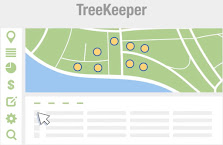The semester-long program facilitated by the Franco Harris Pittsburgh Center at Penn State, offers students a three-credit course in urban sustainability, an internship with a community partner and experience in the field.
Madeleine Ryan is majoring in Landscape Architecture in the College of Arts and Architecture and is part of the 2024 City Semester Pittsburgh cohort.
She is an intern with Riverlife, a nonprofit organization that works with Pittsburgh property owners, public officials and community groups to create, activate and celebrate the city’s riverfronts.
“This internship has provided me with important insight into government, nonprofit and corporate systems aiding Pittsburgh’s urban development. Because Riverlife is a nonprofit, most of their work is collaborative and supported by these groups,” Ryan said. “My time at Riverlife has given me a deeper understanding of these public processes and how designs come to life.”
Ryan is from Pittsburgh and said she deeply values Riverlife’s mission and hopes to stay in the city, use what she is learning in her internship and carry it forward into her career.
“I assisted with planning and design for multiple long-term capital projects that support Riverlife’s master plan entitled Completing the Loop, to create trail connections to fill gaps between Pittsburgh neighborhoods that are located along the riverfront,” Ryan said. “Through this work I have gained extensive knowledge in community engagement, and I plan on referring to this as a guide throughout my career.”
While working with Riverlife, Ryan also worked alongside youth from H.O.P.E. for Tomorrow, a program dedicated to teaching youth in the Pittsburgh area financial literacy, health, fitness and other life skills through after school programs and summer camps.
Together they assisted in building accessibility ramps on the West End Bridge and created a community garden.
“This project empowers youth community members not only by allowing them to take ownership of a space in their neighborhood but also by teaching them useful skills,” Ryan said. “It was rewarding to hear that the children were excited that they now knew how to start a garden in their yards.”
As part of the completion requirements for her internship with Riverlife, she was assigned a site for a small design project that can inspire future projects at the site.
“I was given a small site along the Allegheny River that is adjacent to the Three Rivers Heritage Trail and 11th Street. The site is a desolate patch of grass downtown, but I am working on drawings to activate this space as a trailhead,” said Ryan. “This site is also at the beginning of Riverlife’s proposed art walk so I am proposing a sculpture garden, including way-finding murals. If this space came to fruition, it would provide trail users a safe, interesting space for respite.”
Chun (Pure) Zheng, urban design and community engagement specialist for Riverlife, said Ryan is working on initiatives that will teach her skills needed in project management, urban planning, community engagement and landscape design.
“She will learn how to navigate the complexities of urban development projects in Pittsburgh, from initial design concepts to community collaboration and implementation. This experience will be invaluable in her future career, providing her with practical knowledge and a deeper understanding of how to create and sustain vibrant public spaces,” said Zheng. “Those projects also have the potential to significantly enhance the community by creating accessible, attractive, and functional riverfront spaces. These improvements can lead to increased community engagement, improved public health through the promotion of outdoor activities, and economic benefits from increased foot traffic and tourism.”
Students who are a part of the City Semester Pittsburgh cohort will present a video about their community project at the culmination of the semester. Videos created by previous cohorts can be seen here.
To learn more, visit Penn State’s City Semester Pittsburgh webpage and other urban sustainability programs, visit the Franco Harris Pittsburgh Center webpage.
(Photo: Madeleine Ryan helping to plant a community garden.)
[Posted: July 31, 2024] PA Environment Digest




